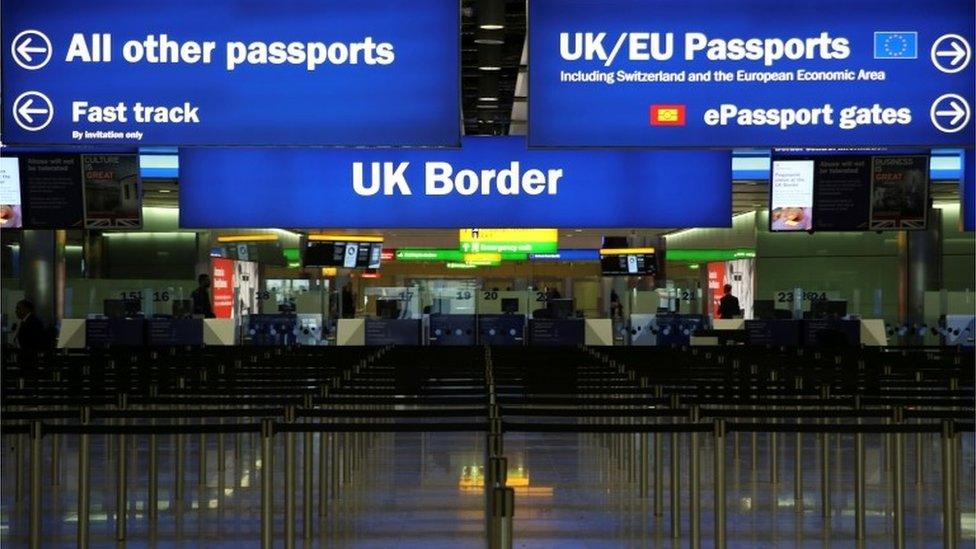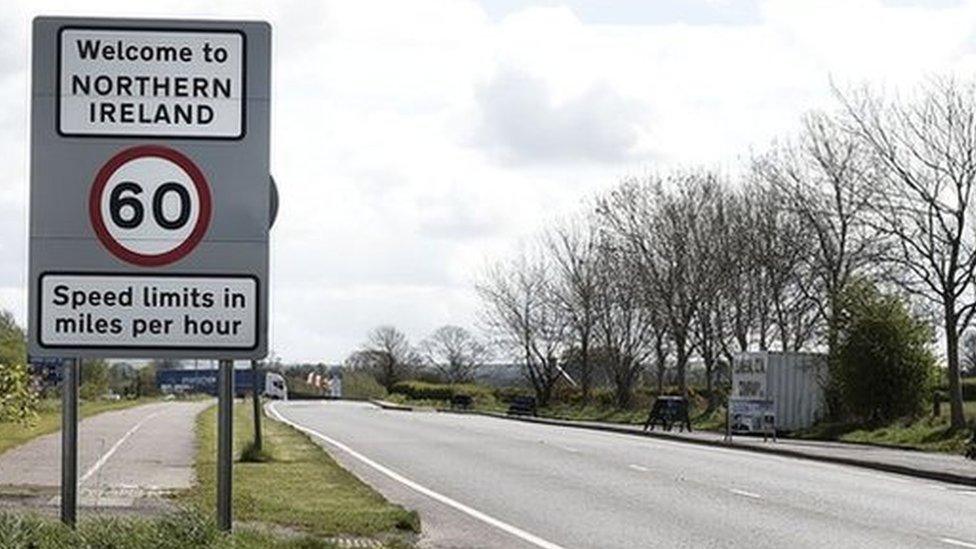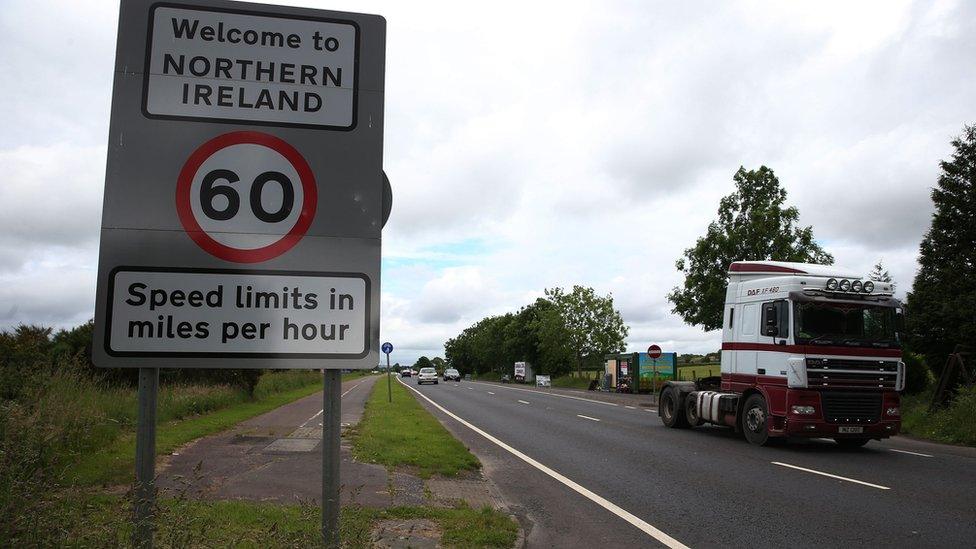Brexit: UK looks to keep visa-free travel from EU
- Published
- comments

The government plans to keep visa-free travel to the UK for EU visitors after Brexit, the BBC understands.
But if visitors from EU countries wanted to work, study or settle in the UK they would have to apply for permission under the proposals.
EU citizens are currently free to live and work in the UK without a permit.
The Home Office says managing migration is about access to work and benefits as much as the ability to control entry at a physical border.
But ministers are likely to face questions about whether there will be a "back door" into Britain and how the Home Office would stop visitors staying longer and getting jobs without a visa or a work permit.
'More red tape'
Labour MP Ben Bradshaw, a member of the Open Britain campaign against a "hard Brexit", said: "Nobody who voted to leave the European Union expected Brexit to mean Britain losing control of immigration, yet that is exactly what the government proposes.
"Restricting the right to come and work in Britain while leaving an open door for everyone else seems to be opposite of a common sense immigration system.
"It will not restrict anybody coming here from Europe who does not intend to work and may push other EU nationals into the black economy."
He said the proposed new system "offers little control while burdening British businesses with yet more red tape" and the government should "put single market membership back on the table" instead.
The Migration Watch pressure group said it was a "sensible, proportionate" proposal but the government would need to spend more money on immigration enforcement to deal with overstayers.
The Home Office said: "Proposals for the future immigration system for EU citizens will be published in due course."
Prime Minister Theresa May said free movement "as we've seen as members of the European Union" will end and there will be immigration rules "for people coming from inside EU - as today we have rules for people coming from outside the EU".

Analysis
By Chris Morris, Reality Check Correspondent
The UK already grants visa-free travel to nationals from 56 countries - ranging from the United States to the Maldives.
Passports are stamped on entry, and people are allowed to stay for a maximum of six months.
But they are not allowed to work, study or settle. It's hardly surprising that a similar scheme is being considered for nationals from EU countries after Brexit - not least because future arrangements are likely to be reciprocal.
In other words, if EU citizens needed visas to come to the UK in the future, UK citizens would need visas to travel to the EU.
So it may be that the government's immigration plans will be to add several hundred million Europeans to a scheme that already exists.
And the main burden for policing it, and checking whether people are here legitimately, would not fall on a beefed up border guard or immigration service.
Rather, it would rest with employers - everyone from the NHS to a small high street cafe - as well as landlords, banks and local government agencies.


According to The Times, the new system for EU visitors will be phased in after Britain officially leaves the EU in March 2019, with those coming to work in the UK initially having to register with the Home Office without work restrictions.
It would be up to the EU to decide whether the offer of visa-free travel - if it is formally proposed by the UK Brexit negotiating team - would be reciprocated.
The EU is working on a travel authorisation scheme for visitors to the EU, similar to the US ESTA visa-waiver scheme. Sources in Brussels said it would be a matter for the negotiations whether UK travellers will have to apply to it after Brexit.
Former UKIP leader Nigel Farage has accused the government of caving in to EU demands.
But Brexit-backing Conservative MP Andrew Bridgen said: "I don't think anybody ever intended we were just going to pull the shutters down and become a Little England.
"The same restrictions will apply to UK citizens who wish to visit the Continent.
"I mean, did you really think we were going to have a visa system just to go for a weekend to Paris?"
Irish border
Lord Green of Deddington, chairman of Migration Watch UK, said: "The point is that a work permit system for EU workers would lead, in due course, to a massive decrease in net migration from the EU as low-paid workers are squeezed out.
"The reduction could, by our calculation, be about 100,000 a year."
He said enforcement could be done through employers but the government would have to spend more money on a "crackdown" on illegal immigration, something he said was "increasingly necessary" in any case.
Migration Watch says 80% of EU migrant workers are currently "low-paid", although their definition, external is people who would not qualify for a Tier 2 non-EU visa, which has a minimum salary requirement of £35,000.
The government says it wants to progress to negotiations with the EU about the future operation of its border controls as quickly as possible.
On Wednesday, the government said there should be no hard border between Northern Ireland and the Republic of Ireland after Brexit.
A paper detailing its proposals stressed there should be no physical infrastructure - such as customs posts - at the border, which has almost 300 crossing points.
Critics said the proposals lacked credible detail, with Labour deriding the plans for the border as a "fantasy frontier".
- Published16 August 2017

- Published16 August 2017

- Published30 December 2020

- Published31 August 2017
